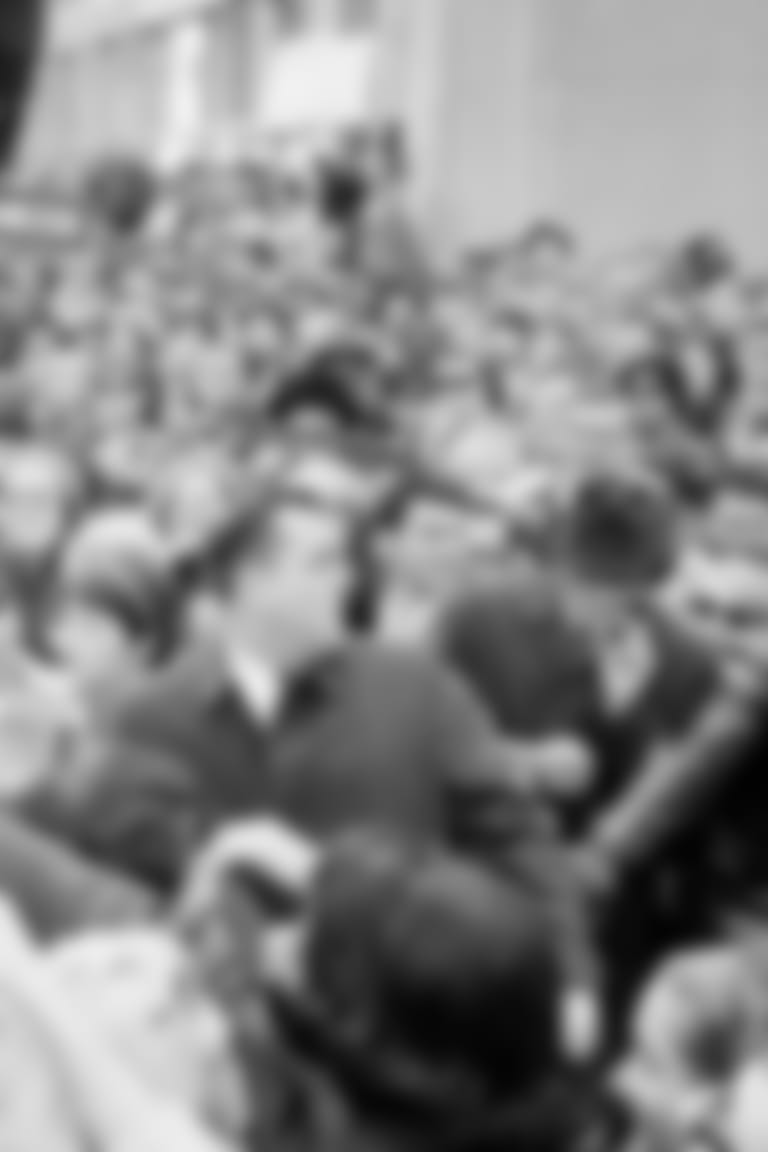How a personal connection with Robert F. Kennedy -- and an up-front view of a harrowing moment in history -- awakened an NFL star's social conscience
By Jeffri Chadiha | Published June 4, 2018
LOS ANGELES -- On an unseasonably cool mid-May morning, an 85-year-old man squeezed his massive frame onto a metal folding chair at the entrance to the Robert F. Kennedy Community Schools. He wore a tan suede leather jacket -- with decorative tassels across the chest -- dark denim jeans and a brown cowboy hat that covered his sensitive eyes. Roosevelt "Rosey" Grier calmly listened to his wife, Cydnee, as she gently discussed a strategy for approaching the day. He clutched a brown cane in his right hand as he nodded to each idea she mentioned, knowing full well that he couldn't prepare enough for the grueling task that awaited him.
The last time Grier walked onto that property, it was known as the Ambassador Hotel. It was a place where he had once come to celebrate and protect that same revered politician the schools are named for today, not long before a gunman named Sirhan Sirhan killed Kennedy and the hope that the presidential candidate had inspired in America. That tragedy happened on June 5, 1968. For Grier, even after the passing of 50 years, it still breaks his heart every time he thinks about all that was lost on that day.
Grier made his name as a star football player with the New York Giants and Los Angeles Rams, logging 11 seasons as a burly defensive tackle. That job surely taught him a thing or two about bracing for action, pushing through pain and producing whenever necessary. That's what he was steadying himself to do while resting in that chair. Grier would be taking a short walk around the schools, one that would involve him answering questions that he's obsessed over for five decades. Grier understood that this would hurt him in ways he'd rather avoid, but he also knew the importance of going forward.
"He was a great man," Grier said of Kennedy. "There was no one like him in the world."
There's been so much conversation about political activism in today's NFL that it's easy to forget pro football players had a social conscience long before former San Francisco 49ers quarterback Colin Kaepernick and a host of other players decided to protest social injustice during the national anthem. The 1960s was a decade defined by people's willingness to take a stand, and Grier was one of the most interesting members of that movement. It wasn't because he had the charisma of Muhammad Ali, the edge of Jim Brown or the smarts of Bill Russell, all iconic rebels in their own right. It was because he had the courage to transform himself in ways he once never thought possible.
The beauty of Grier isn't so much that he was ready to battle during one of the most turbulent times in our country's history. It was that he truly embraced all that Robert F. Kennedy espoused.
"I only knew Bobby for a short period of time, but he was ... the man who was seeing this country, and he knew that something had to be done," Grier said. "And I thought we could do that together. And all these people, If we worked together, we [could] change our society."
It's easy to tell the story of Grier as a football player. He was a dominant force at 6-foot-5 and 284 pounds, a player who represented one quarter of the Los Angeles Rams defensive line nicknamed "The Fearsome Foursome" (a unit that also included Lamar Lundy and Hall of Famers Merlin Olsen and David "Deacon" Jones). Grier was the gentle giant of the group, a man who loved singing and playing his guitar as much as he enjoyed sacking quarterbacks. He played in two Pro Bowls and received Associated Press All-Pro honors three times during his career (first-team once, second-team twice).
The story of Grier as an activist is far more complicated. He didn't grow up looking for a way to shake up the system. In many ways, the system found him. The 1960s were filled with plenty of fights to engage in -- from the civil rights movement to the controversial war in Vietnam -- and it would've been impossible for a man who genuinely cared as much about humanity as Grier did to simply sit back and watch. He might have started his pro football career with a strong focus on competing and entertaining, but he ended it with a clear vision of what he thought this country should be.
Even today, when Grier hears about a tragedy on the news, his soul quakes a bit, as if he can't quite come to grips with a world where people can't co-exist more easily.
"When we see a student, or a young person, goes into a school and [carries out a shooting], it will trigger [him] back to [Kennedy's assassination]," said Cydnee, who is 68 today and was 18 when Kennedy was killed. "I mean, you know, everyone is there ready to celebrate (in 1968) because it looks like Bobby is going to be winning this area, and so everybody is there exhilarated and excited. He's going through the kitchen and he's speaking to everybody, and no one is even thinking in the least that a tragedy is going to happen. And so when we see more tragedies [today], it triggers him back to there, sometimes to tears and quiet ... where he just kind of goes inward for a while, to just think about that, and then it's always, 'What can I do? ... What can we do to make things better?' "















